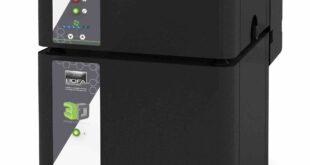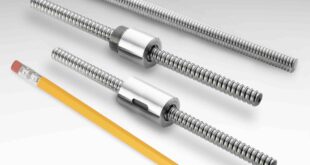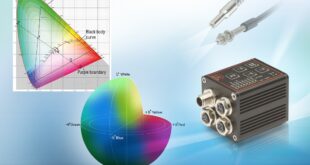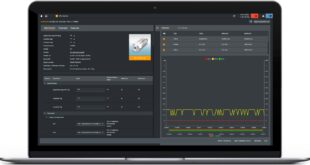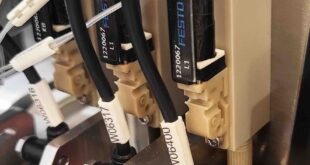Precision sensor manufacturer Micro-Epsilon has launched a compact confocal chromatic displacement sensor for high precision measurements of distance, surface roughness and thickness.
The high numerical aperture (NA 0.8) enables thickness measurement of transparent objects with a minimum thickness of 5µm.
Another light-intensive sensor model (NA 0.7) is available for high speed processes.
The IFS2407-0,1 is a compact confocal sensor based on innovative technology that opens up new applications for displacement and thickness measurements.
The sensor offers a measuring range of just 100µm (0.1mm). This, combined with a high resolution of 3nm, enables reliable, high precision measurements of transparent layers such as glass or plastic film/substrates with thicknesses from just 5µm.
The sensor offers a large tilt angle, made possible by the numerical aperture, i.e. the degree of the light rays bundled in the optical system (NA 0.8 or NA 0.7 depending on the sensor model chosen).
Combined with a light spot diameter of just 3µm, the sensor detects the finest of structures and so can be used for surface roughness measurements.
The standard version with NA 0.8 is ideal for high precision measurements of rough surfaces and thin layers.
The other light-intensive version (NA 0.7) is suitable for high speed measurements with short exposure time and is suitable for dark surfaces.
Particularly in the automotive industry, extremely high demands are placed on product quality.
Confocal chromatic sensors from Micro-Epsilon enable highly accurate inspection of ultra-fine surface structures.
The IFS2407-0,1 sensors are used, for example, for measuring the roughness of brake discs. The disc is smooth, polished and often shiny, with surface structures almost imperceptible to the human eye. These ultra-fine structures become clearly visible only under a microscope.
These surface structures are required to create friction and to ensure a high braking force even after numerous braking manoeuvres.
Another sensor in the confocal range from Micro-Epsilon is the IFS2407/90-0.3. This has a lateral 90° beam path, which means it is particularly suitable for special installation scenarios, for example, when inspecting automotive cylinder liners.
The axial beam path of the confocal sensors avoids shadowing effects, enabling measurements even in sleeves and recesses.
High precision measurements with tilted objects are also possible.
Confocal chromatic measurement systems are used for micrometer precise displacement, distance measurements and intensity evaluation.
Based on the determination of the distance, surface topographies of objects can be obtained.
Unevenness and scratches influence the degree of reflectance causing a change of the signal intensity. Therefore, an exact image of the target and its fine structures is produced.
 Engineer News Network The ultimate online news and information resource for today’s engineer
Engineer News Network The ultimate online news and information resource for today’s engineer
